SOVAS Brings Voice Acting to
the American Black Film Festival 2024
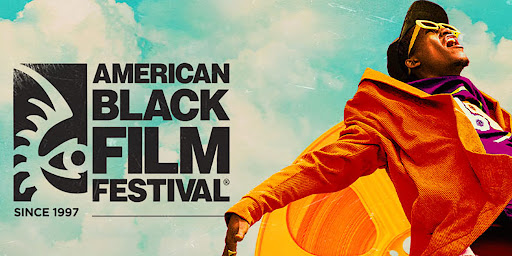
By Kayla Bowles, June 30, 2024
Kayla: I’m so thrilled to be sitting down with the co-founders of SOVAS, Rudy Gaskins and Joan Baker to talk about their panel at the American Black Film Festival (ABFF), Sonic Force: Storytelling through Voice Acting. Rudy, Joan, thanks so much for being here with me. Can you share any expectations you had going into the event?
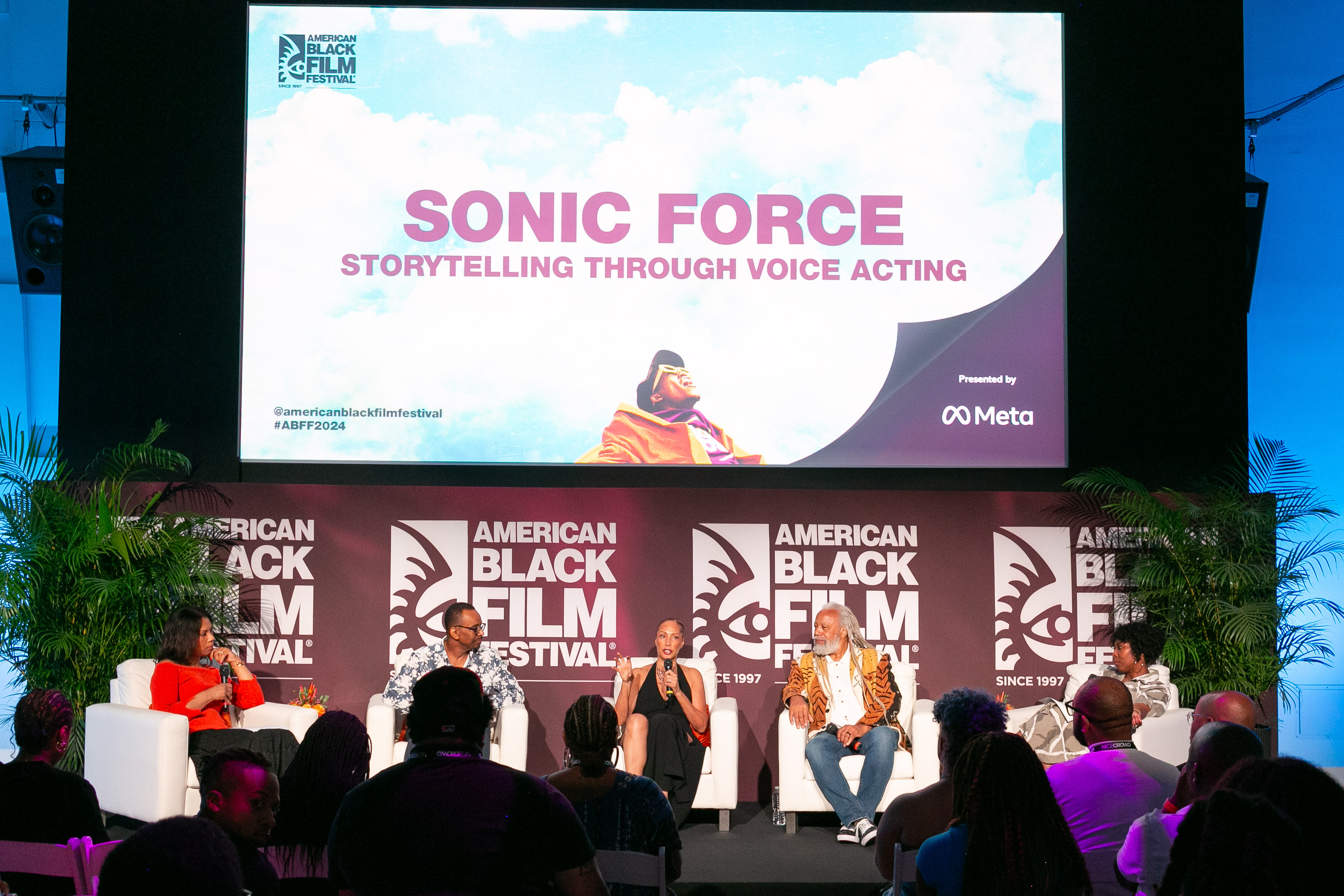
Joan: This was our first time at the ABFF, and though we had heard about it for many years we hadn’t quite made an active connection. It was during a retreat with our sponsors that the team from Comcast NBCUniversal suggested we connect with more events related to areas of show business outside of voice acting, and ABFF was one of their recommendations. I started pursuing it right away, but it wasn’t until we met Terri Bowles and Michele Prettyman, founders of Daughters of Eve Media, who had been working with ABFF for 10 years, that the opportunity arose to pitch a panel discussion. They agreed to make our story the topic of their annual presentation at ABFF. I didn’t really set any expectations right away. I was just excited to be working with Daughters of Eve Media, under Meta’s auspices, and to experience whatever the festival had to offer.
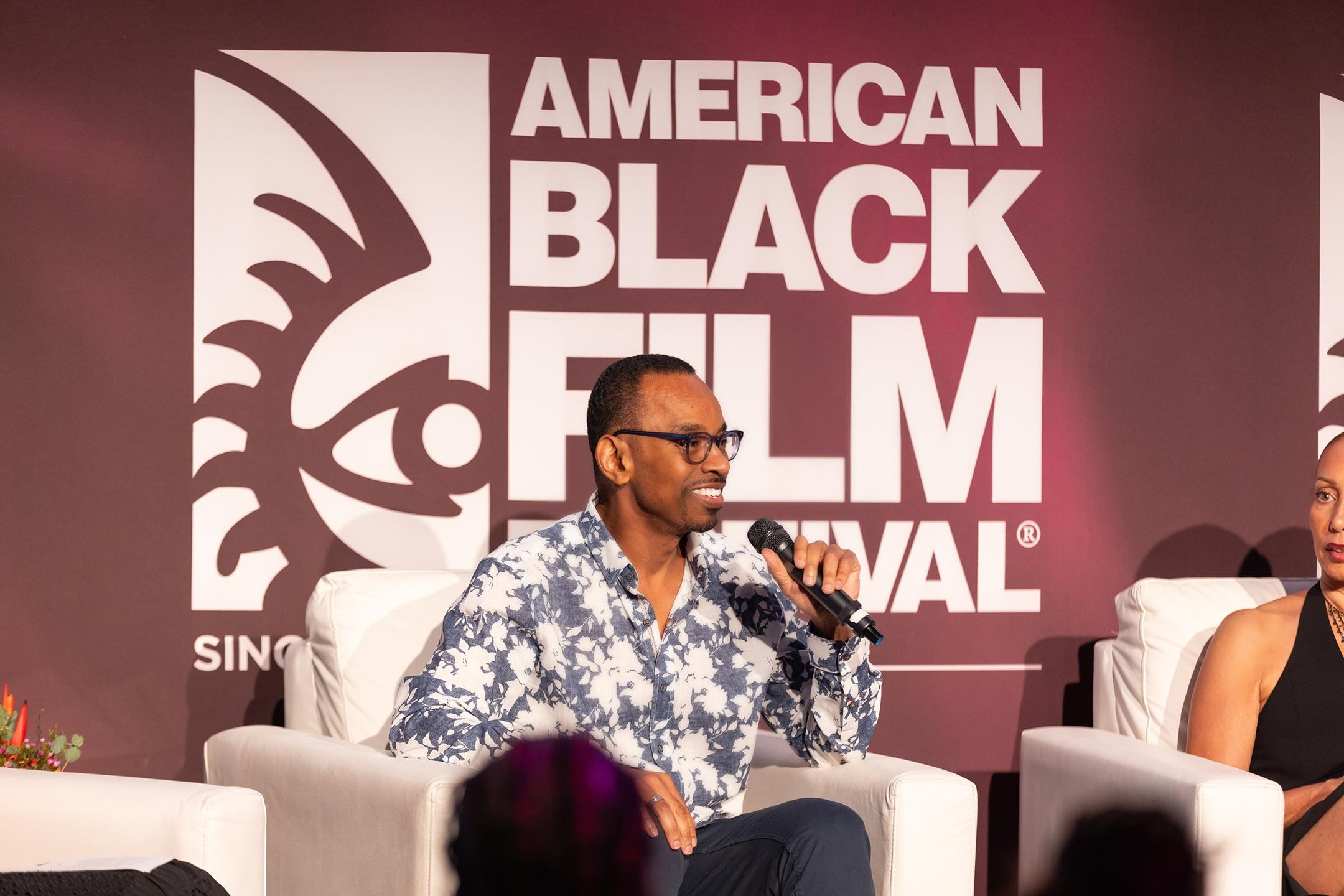
Rudy: What excited me about working with filmmakers was the fact that it was an industry in which I worked for 15 years straight out of NYU film school, cutting my teeth as a sound and music editor with Spike Lee, Brian De Palma, Francis Coppola, Jonathan Demme, Alan Pakula and others. I assumed that we would be talking to an audience that was primarily interested in how our insight into voice acting could help them enhance their storytelling as filmmakers. There’s lots of overlap in that filmmakers depend on voice actors for looping, ADR, dubbing, narration, advertising, human sound effects, and various marketing vehicles to help pitch projects. In my early career as a filmmaker, I found it daunting to be thrown into the fire with voice actors, and I wanted to help prepare them.
Kayla: So, do you feel that the story you wanted to share with the attendees resonated as you hoped?
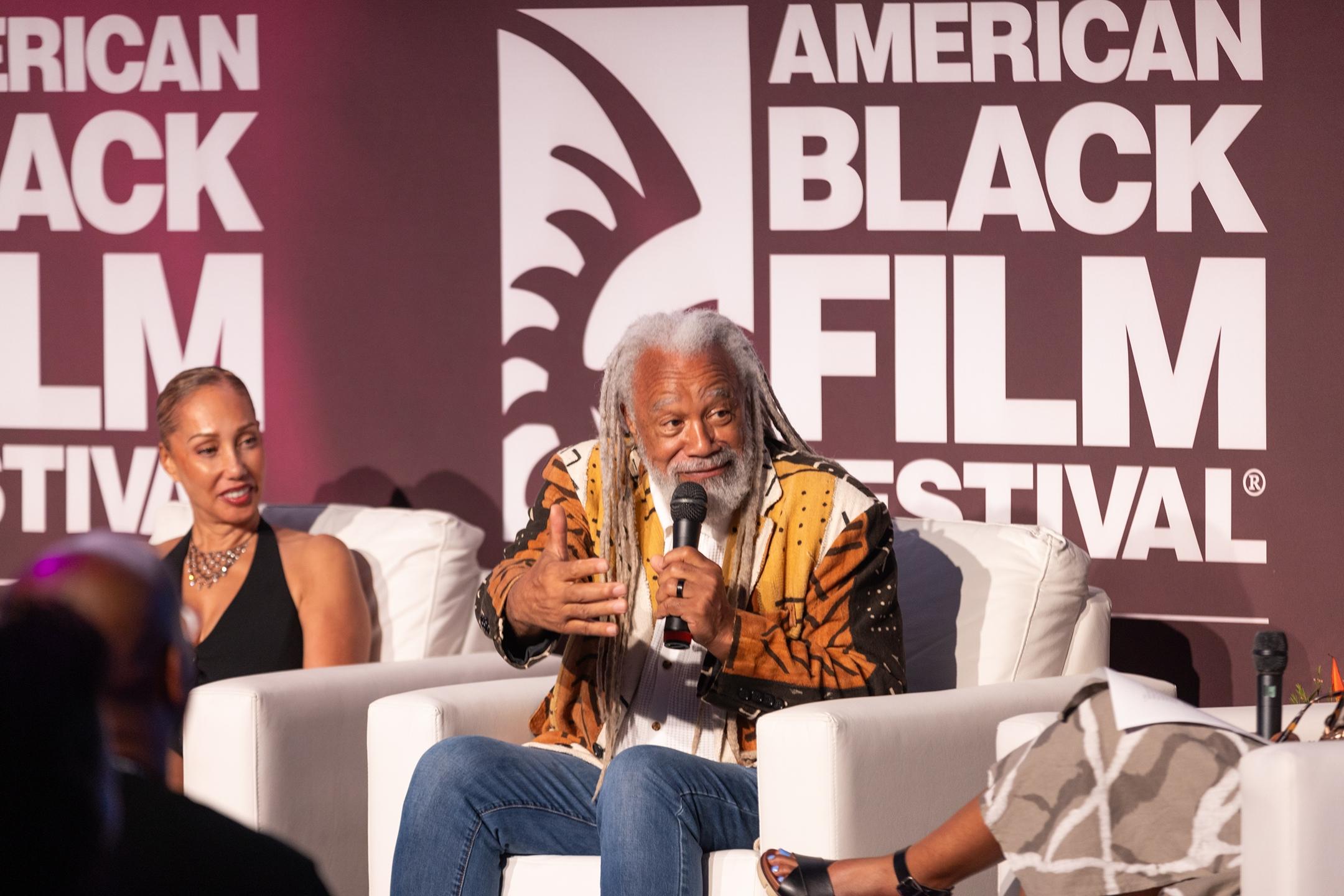
Joan: It’s all about going with the flow. Terri and Michele knew this audience and they curated a range of questions that called upon us to tap into the room. We also invited a treasured colleague, Dave Fennoy, to join us on the panel. Dave’s legendary background voicing iconic videogame characters, animated series, promos, commercials, etc., opened yet another avenue of discussion, as everyone in the audience had a personal experience playing the video games and watching the various series on which Dave’s voice acting was a starring character. Also, and this wasn’t entirely unexpected, many in the audience wanted to know more about how to become voice actors, and how to direct voice actors. We ended up sharing incredible tips about the craft and art of voice acting that aren’t typically known. That’s the part that really excited me, that we could actually dig into the craft in a way that could help anyone in the industry understand what voice acting entails.
Kayla: And what were some of those questions that prompted those tips that you shared?
Rudy: The questions ran the gambit: How does one break in? What are some of the myths about a voice acting career? Is there racial bias to contend with? How do you develop authentic characters? We were also asked to share an experience requiring the voice actor to adapt their performance to fit an emerging technology or platform and to share favorite voice acting projects. But the question that struct me was from a woman who was scheduled to direct a voiceover session for one of her projects, and she wanted to know how to approach it. I offered her the following: As a director, you want to be very clear about your vision, and you want to do your homework on each character so that you have answers and suggestions in the event an actor is unclear about circumstances or motivation. Part of your job is to take care of the actor. Leave your anxiety at the door and create a safe space that leaves room for creativity, spontaneity and unexpected choices. Finally, you want to leave room for the actor’s instinctive choices to illuminate your vision in ways you may not have considered.
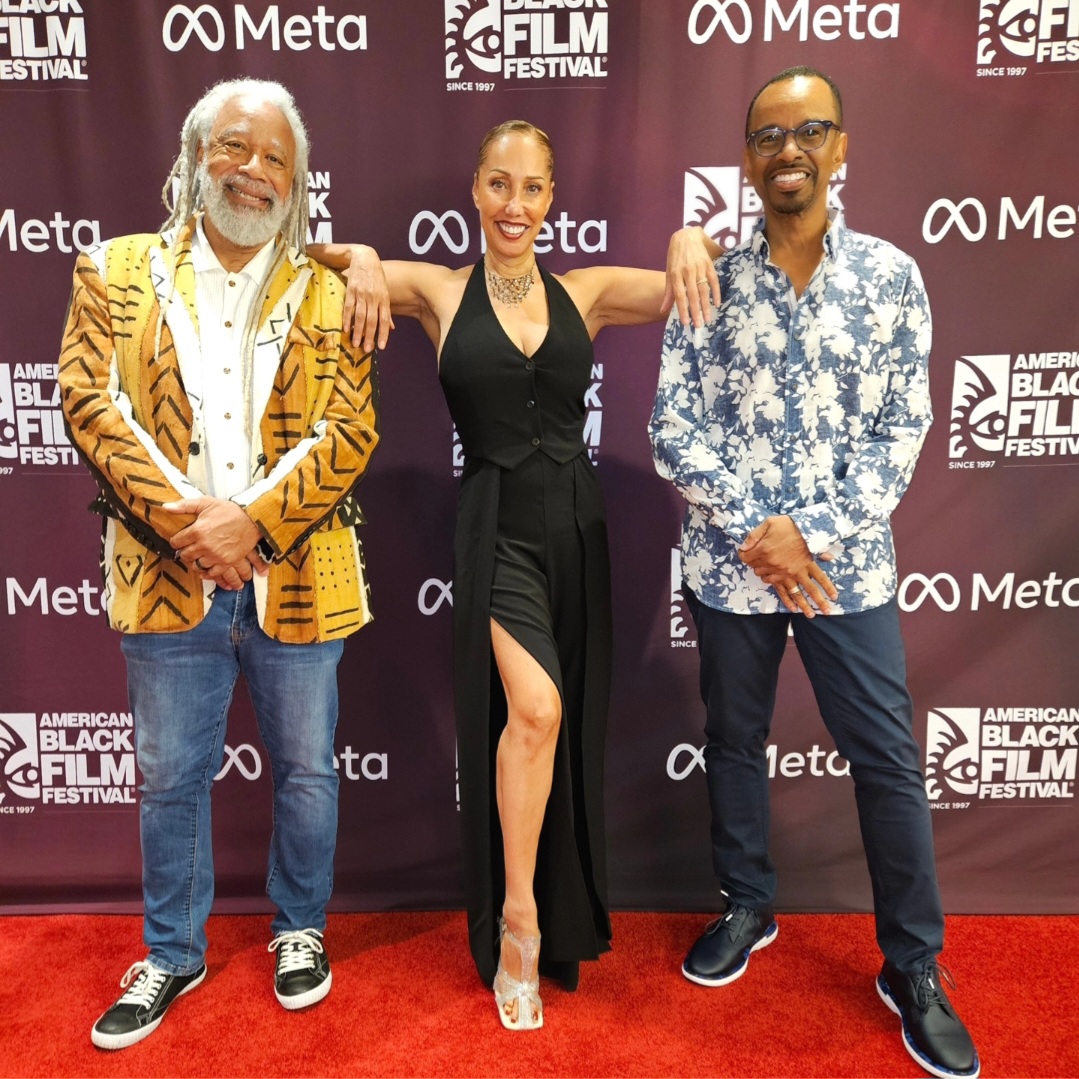
Kayla: Did you address racial disparities in the voiceover industry?
Joan: We did. One huge take-away that we were able to share is that mainstream is no longer defined as white America. To this day, advertising agencies like to target people by race. When they use the term mainstream, what they mean is white. But people are smarter than that, and the world is dominated by people of color. When we look at the world, we see the diversity and commonality, in spite of frictions that may exist on other levels of society. We know that there is no America without Black American, Asian America, etc. Diversity is the new mainstream.
Rudy: I couldn’t agree more. Diversity is the new mainstream. And that’s a unique scenario given that we’re in the throes of the American Black Film Festival where people are focused on black Americans and the broader cultures of color. Those dynamics are important, and we should celebrate them.
Kayla: It sounds like the audience got a lot of new and unexpected insights.
Joan: I believe they did. The conversation about voice acting and storytelling opened up something new at ABFF. Even the founder of the festival, Jeff Friday, came in to hear our panel. We were told this was unusual, and he was stoked by the excitement and interest shown by the audience and the depth of information we shared as hosts and panelists.
Kayla: It’s really a unique perspective. For as much as I’d like to read up on voice acting, I really didn’t think about it in terms of the role it plays in the greater filmmaking process. I was focused on what the individual’s experience in the voiceover industry is like. This conversation has most definitely inspired me to spend more time considering the bigger picture, especially regarding the impact black voice actors have on the greater film industry.
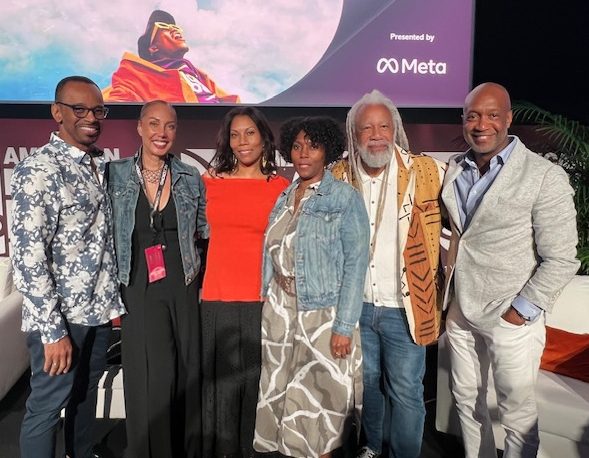
Joan: It was incredible how interested they were in how to bring out their performances in a way that can impact projects and how to approach that in a way that is sensitive, thoughtful, and empowering. Our interviewers, Terri and Michele truly set the tone for this conversation in their opening remarks, so there was a lot of respect in the room when we walked in, and I mean respect for the craft and the work that we put into the industry. People were still coming up to us days later with questions. I know it meant a lot.
Kayla: It’s sounds like the voice over industry has become more open with the advent of your programs which I understand you started around the time of publishing of Joan’s book, Secrets of Voice-over Success, back in 2005.
Rudy: Many have contributed, but we were certainly at the forefront of this new era. It’s a hell of a lot easier to penetrate the voiceover industry than it was 10 or 20 years ago, but it’s not a straightforward path. There’s an unwieldly set of dynamics one has to negotiate to find one’s bearing and to find trusted, qualified teachers. Slowly, university drama departments are beginning to develop legitimate curriculums that will produce voice actors with the necessary skills, just as they do with traditional acting. But for most newcomers, they will have to do a fair amount of research, accompanied by a lot of common sense, to find legitimate coaches who truly have their best interest at heart. SOVAS has built a community of the very best of the best. Even with that, we have to be watchful of scams, as well as well-meaning people who believe they can teach voice acting but are ill-equipped to do so.
Kayla: Before we wrap up, I have a comment here from Daughters of Eve Media…
“Daughters of Eve Media was thrilled to showcase the work of SOVAS and engage Rudy and Joan in a fascinating discussion with iconic voice actor, Dave Fennoy at this year’s American Black Film Festival. Our audience was deeply invested in learning about SOVAS’s dedication to the professional work of voice actors in TV, film, podcasts, audiobooks, animation, commercials and more. Rudy and Joan offered deep insights into the world of voiceover and shared valuable personal experiences and advice for aspiring VO artists. We enjoyed every moment of the panel discussion and look forward to partnering with them again.” -Terri Prettyman Bowles, Co-founder, Daughters of Eve Media
Kayla: Thank you again, Rudy and Joan for this incredible conversation.
Joan: It was our pleasure, Kayla. ♦♦♦
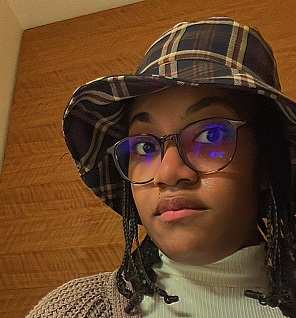 Kayla Bowles is assistant to Rudy Gaskins and Joan Baker, founders of the Society of Voice Arts and Sciences (SOVAS), creators of That’s Voiceover! Career Expo, and the Voice Arts Awards. She currently studies the art of voice acting with Joan Baker, and has studied with Real Voice L.A., The Acting Studio, and Broadway Evolved. Though new to the voiceover business, Kayla has already booked a local TV commercial, a role in an indie animated series (in development), and has lent her voice to various passion projects. She is currently an undergrad at Sarah Lawrence College in Bronxville, NY.
Kayla Bowles is assistant to Rudy Gaskins and Joan Baker, founders of the Society of Voice Arts and Sciences (SOVAS), creators of That’s Voiceover! Career Expo, and the Voice Arts Awards. She currently studies the art of voice acting with Joan Baker, and has studied with Real Voice L.A., The Acting Studio, and Broadway Evolved. Though new to the voiceover business, Kayla has already booked a local TV commercial, a role in an indie animated series (in development), and has lent her voice to various passion projects. She is currently an undergrad at Sarah Lawrence College in Bronxville, NY.













Add Comment